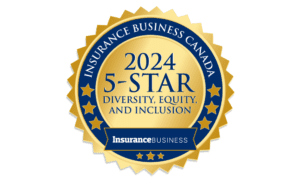Which are better bifocals or progressives?
Which are better bifocals or progressives?
Progressive Lenses As compared to bifocal lenses, progressives provide a wider zone of clear vision to make activities like computer use and reading easier for the wearer. Early progressive lens designs had a soft blur during movement. Jul 1, 2021
What are the disadvantages of progressive lenses?
Possible Disadvantages of Progressive Lenses Progressive lenses, which are thinner and lighter, require a higher degree of expertise and technology than single-vision lenses or bifocals, making them more expensive. They usually have a smoother transition, which makes them cost more, too.
Why can’t I read with my progressive lenses?
People have reported that they feel unstable, can’t read or even can’t see out of them at all. The vast majority of adaptation issues with progressives lenses aren’t from the lenses at all, rather they are caused by the fitting of the lenses to the patient. Feb 13, 2017
Can I use VSP at Costco?
Costco accepts most major vision insurance plans, including both VSP and EyeMed insurance.
Is Cigna vision the same as VSP?
Is Cigna vision the same as VSP? No, they’re separate companies. Sometimes health insurance companies like Cigna will have their vision benefits administered through VSP.
What is the purpose of an insurance company?
Insurance companies are a special type of financial institution that deals in the business of managing risk. A corporation periodically gives them money and, in return, they promise to pay for the losses the corporation incurs if some unfortunate event occurs, causing damage to the well-being of the organization. Mar 26, 2016
What’s an example of an insurance company?
Some well-known examples of insurance companies that sell both homeowners and auto insurance include Progressive, Nationwide, Allstate, Liberty Mutual, and Travelers, among many others.
Which insurance company is the most popular?
The Largest Auto Insurance Companies Rank Auto insurance company Market share % 1 State Farm 16.73 2 Allstate 9.88 3 Progressive 9.71 4 Geico (Berkshire Hathaway Inc. 9.49 47 more rows • Feb 4, 2022
Which company is the best for insurance?
Top #15 insurance companies in India: Life Insurance Corporation of India. … Max Life Insurance Company. … HDFC Life Insurance Company. … ICICI Prudential Life Insurance. … Tata AIA Life Insurance Company. … Bharti AXA Life Insurance Company. … Bajaj Allianz Life Insurance Company. … SBI Life Insurance Company. More items… • Feb 25, 2022
What are the 3 main types of insurance?
Insurance in India can be broadly divided into three categories: Life insurance. As the name suggests, life insurance is insurance on your life. … Health insurance. Health insurance is bought to cover medical costs for expensive treatments. … Car insurance. … Education Insurance. … Home insurance. Feb 17, 2022
What are the 4 types of insurance?
Different types of general insurance include motor insurance, health insurance, travel insurance, and home insurance.
What are the 5 main types of insurance?
Home or property insurance, life insurance, disability insurance, health insurance, and automobile insurance are five types that everyone should have.
Which is the largest insurance company in the world?
UnitedHealth Group By net premiums written Rank Company Country 1 UnitedHealth Group United States 2 Axa France 3 Ping An Insurance China 4 China Life Insurance China 21 more rows
Who is insured person?
2) The insured is the person whose life is being covered against the risk under the policy. 3) The insurer is the insurance company that provides the insurance cover. 4) The proposer is the person who takes the cover and is also called the policyholder.
How many insurance companies are there?
In 2020 there were 5,929 insurance companies in the U.S. (including territories), according to the National Association of Insurance Commissioners. This number includes: P/C (2,476 companies), life/annuities (843), health (995), fraternal (81), title (62), risk retention groups (245) and other companies (1,227).


